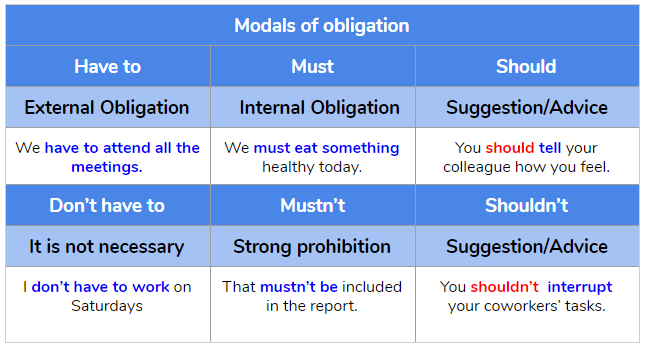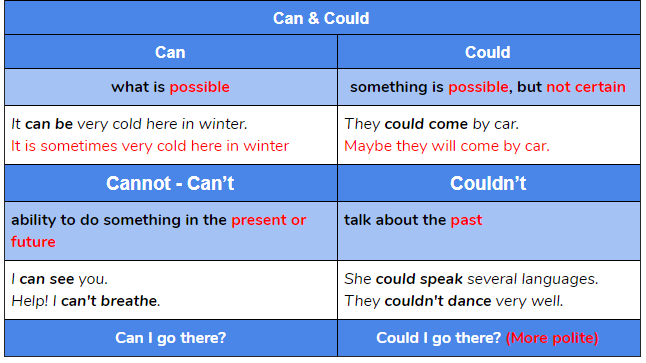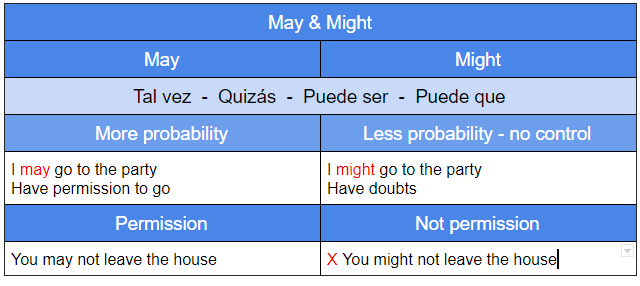Modal verbs
Here you will found the main uses for modal verbs in English and some examples about them.
HAVE TO, MUST AND SHOULD
First, We're going to start reviewing modal verbs of obligation:

What is the difference between have to (external obligation) and must (internal obligation)?
- An external obligation is something that doesn't come from yourself but from an external factor
- An internal obligation is something that you do on your own because is something that you need to do
CAN AND COULD
Then We have moval verbs of possibilities:

I know that maybe you are thinking "what is the difference between can and could?"
The answer is very simple:
- We use "could" to show that something is possible, but no certain
- We use "can" to make general statements about what is possible
MAY AND MIGHT
We use them to express possibilities about something that can happen or could happen, but We don't have certainty about it.

What are the differences between may and might?
-
May
- May should be used when you are talking about a possible event or and event that could be factual.
- May is the verb in the present tense.
-
Might
- Might refers to events that are hypothetical or possible but very unlikely.
- Might is the same verb but in the past tense.